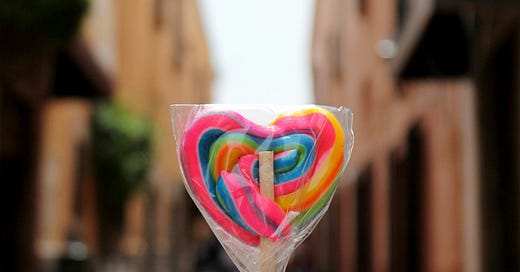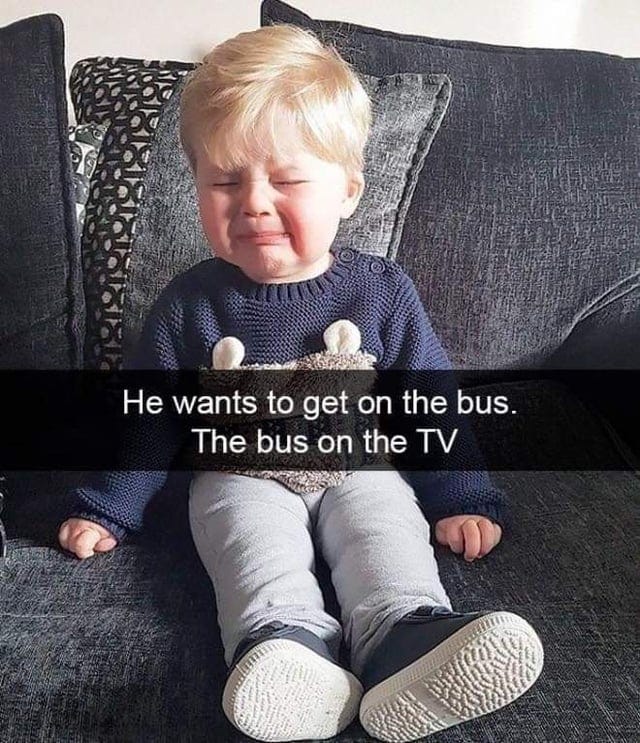Adult Children: It's Not Cute Anymore
Why do we think of ADHD traits as needing to be "managed" while ASD traits are generally embraced and celebrated?
There’s a vibe I’ve noticed round here recently, and as a person with ADHD I am generally cursed to notice vibes without much ability to grasp what’s going on and adjust accordingly.
Fortunately, a number of other Substackers have named outright what I’ve been struggling to articulate: a marked difference in the attitude with which people write about (and therefore think about) the different neurotypes.
In short, there’s a pattern where articles written under the autism/AuDHD corner of the neurodiversity umbrella are generally curious, thoughtful, and celebratory about the diagnosis. There’s posts about joyfully unmasking, seeking autism-friendly spaces and places, “finding your people”, and generally embracing difference. On the other hand, the articles focused on ADHD (yes, including my own) tend towards writing that can roughly be translated as “How to Stop Being You - Because Holy Shit You are Cringe”. It’s advice-driven stuff, strategy and goal-focused. It’s “understanding yourself” as an introductory trenchcoat, under which an aggressive strategy of self-erasure and self-censorship can sneak into the party.
Why the stark difference? I have a theory.
ADHD, as the accepted scientific wisdom goes, is perhaps better understood as a developmental delay disorder as opposed to a “neurotype”. While it involves issues with executive functioning, the higher-level cognitive skills associated with planning, focus, memory, and task execution, ADHD doesn’t make people fundamentally different creatures comparative to other humans. What we are is underdeveloped in ways that make us appear different.1 For example, our emotional suppression systems are poorly formed and more or less neophytal. Piss off your average normie vs your average ADHDer, and they’ll both have feelings about it … but the ADHDer will find it much harder to stop their anger from igniting into aggression. Statistically speaking, only one of the two is likely to burst into tears, shout obscenities, and throw whatever they’re holding on the floor. In other words:
ADHDers are basically small children
I suspect the reason there’s such a vibe difference between writing aimed at ADHDers (and the way ADHDers feel about their diagnosis) and writing for autistic/AuDHD people (and how they relate to their neurotype) is because society a whole really, really does not welcome, appreciate, or particularly enjoy presence of small children. Therefore:
ADHDers are punished severely and disproportionately for displaying childlike behaviours. We’re rejected (often savagely) for traits that aren’t malicious, or vicious, or unkind, or otherwise ill-intentioned, merely annoying.
ADHDers are likely to have internalised society’s widespread disgust and contempt towards childlike behaviours, and also to turn that inwards on ourselves at times.
Society does not like children (at least, not children who act like children)
Oh, you’re expected to want to have them of course. Being a parent is still a societal flex for some unfathomable reason, the signifier of a winner (unless you’re poor, obviously). But you’re supposed to be a parent without actually having children. All of the cute photos, none of the actual reality of kids, with their mess and noise and annoying habits, who take forever to grow up and have “intelligent conversations” (as if intelligent conversation is possible with your average adult).
Nothing I have done in my numerous decades drawing breath (including the time I vomited on a bouncer’s feet in the middle of Mardi Gras) has earned me anything near the level of visceral dislike I experience while existing in public with a toddler. And no, I’m not an entitled asshole who lets him put his grotty cheeto-dust-and-booger hands on strangers, or do those wicked ear-shredding screams that would get him fined for public nuisance if he were an adult with portable speakers rather than a small potato person with lungs. I’m pretty mindful of other peoples’ comfort and peace, not least because of the pre-emptive dagger-glares. I’m talking … normal little kid stuff. Talking to himself happily on the bus. Dancing in the mall. Running up to people and saying hello, then losing his nerves and hiding behind me. Haven’t we all been there?
I’m going to write more about all this, and also riff on what being childlike means for creativity (spoiler alert, it’s probably good news, but that depends on just how comfortable you can get with accepting that parts of you are young and excitable, because you can’t repress your 11/10 gold star enthusiasm without also flattening your capacity to create).
But that’s a bigger, chewier, 12-hour brisket of a writeup that can’t be rushed. So, in the meantime, here’s 30 little nuggets to strengthen my hypothesis on the ADHD societal stink-eye: every tendency I can think of that’s shared between your average toddler and your average ADHD adult. Feel free to add your own.
30 Tendencies ADHD Adults Share with Toddlers
Getting so excited and carried away at a party that you eat and drink way too much and throw up on someone’s shoes.
Refusing to sleep all night, then making it everyone else’s problem that you’re tired in the morning.
Being incapable of functioning without instructions, while also cheerfully ignoring close to 100% of instructions because fuck you I won’t do what you tell me.
Including 18 side stories and several metric tonnes of irrelevant detail when you recount something that happened to you.
Expecting people to magically follow your meaning when you string three unrelated concepts together because they’re connected in your brain.
Reacting borderline homicidally when someone pulls your attention away from something you’re engrossed in.
Forgetting to go to the bathroom because you’re too engrossed in something.
Eating the same food every. Single. Day.
Then, completely randomly, deciding that same food utterly disgusts you and you are never eating it. Ever. Again.
Only being able to eat with that one special spoon.
Irrationally raging over something objectively insane that nevertheless matters very much indeed to you (my spoon is TOO BIG!)
Being mean and rude because you’re tired.
Being mean and rude because you’re hungry.
Being mean and rude because you’re hungry, only now you’re also too upset to have an appetite, so you refuse to eat, and become very mean and rude.
Interrupting conversations because you feel what you have to say is Very Important even though you’re probably going to forget what you wanted to say halfway through your first sentence.
Not comprehending that the people around you are not interested in the thing you’ve been talking about nonstop for the past 27 minutes.
Or worse, comprehending that nobody cares but being unable to stop because you’re too excited.
Always being the first person to pile up your plate at a shared lunch, and the only person who grabs the last chicken wing or slice of pizza without thinking to check if anyone else wants it.
Needing routine while fighting routine. Literally. Kicking and biting.
Wandering away in the middle of whatever you’re doing because you got distracted.
Ending up with every single thing you own in a giant pile in the middle of the floor at least once a week.
Needing bribery and/or threats in order to follow instructions.
Needing instructions to be repeated anywhere between 10 and 100 times no matter how lucrative the bribery or how dire the threat.
Having very little sense of just how obnoxiously loud you’re being when you’re excited or upset.
Crying because someone ate your food (if you’re reading this you know who you are, and yes I am still upset. “Sorry” doesn’t give me back my lemon pie).
Having no good answer to the very reasonable question “What on earth were you thinking?!”
Relentlessly fidding/stimming when you’re bored. Chewing pencils, tapping fingers, blowing raspberries, humming.
Liking a song, then needing to play it on repeat for a length of time that meets the definition of torture under international law.
Forgetting things (or people) exist whenever you can’t see them.
Being genuinely sad because you can’t do something in a piece of fictional media, like Force-choke people, morph into animals, slay vampires, or ride a T-Rex into battle.
Know that feel, dude.
Update: giant brisketpost on caring for ADHD toddler-brain is now live!
Writing for a Cause
All subscription funds raised by Painting with Lightning go towards funding independent research in psychotherapeutic treatment development. My areas of experience and interest include suicide bereavement, sexual trauma, ADHD, addiction, and the use of AI in psychotherapy.
If you would like a paid subscription but can’t afford one, please email me at skyesclera@gmail.com and I’ll grant you access.
Dr Russell Barkley. (2014). 30 Essential Ideas you should know about ADHD [Video]. www.youtube.com/watch?v=BzhbAK1pdPM







Yeah, I’ve noticed these childlike traits in myself and others with ADHD. I have a hard time not feeling a lot of shame about them. The only upside to me it seems is that we don’t lose that sense of wonder about the world that children have like most other adults do.
I want to like this once for every example you gave that I found personally relatable.
🩷🩷🩷🩷🩷🩷🩷🩷🩷🩷
🩷🩷🩷🩷🩷🩷🩷🩷🩷🩷
🩷🩷🩷🩷🩷🩷🩷🩷🩷🩷